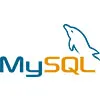About Course
The Master of Science in Computer Science is for candidates who want to look further than algorithms and venture deeper into the technological world. The curriculum encompasses students’ theory, practice, and work in the industry so that you can address real problems within AI, Machine Learning, Cybersecurity, Data Science, and Cloud Computing.
The rate at which technology changes is exorbitantly high, and one should keep pace with it. For that reason, this program teaches the newest computer programming languages and incorporates advanced computing and problem-solving strategies. Whether you want to craft sophisticated AI models, guard digital environments, or develop powerful applications, this course is designed to make an impact.
Under the guidance of specialist teachers and large companies, students will learn to accomplish live projects, participate in hackathons, and engage in context-based innovations, refreshing the skills that students need to get in the workplace. With many global career perspectives in the world’s leading companies, startup businesses, research and development, and even higher education academic institutions, the scope is as wide and lively as the field itself.
If you have dreams of coding, building, or managing projects in the era of the digital revolution, the MSc in Computer Science will provide you with the best starting point. In the technology-dominated world, it's time for one to take charge and start making the changes instead.











































































